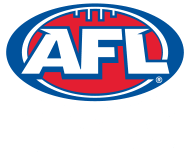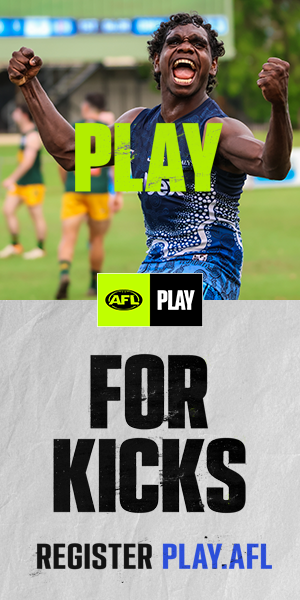Saturday 27 November 2022. A capacity crowd of 8,000-plus packed the new Brisbane Lions headquarters at Springfield for the AFLW grand final against Melbourne. If Bree Brock had a moment to spare, she might have thought to herself “how good is this?”.
Rightfully so. It was a watershed moment in the history of women’s football. And not just in Queensland but on a national level. A moment when the ambitious dreams, the ‘don’t take no for an answer’ attitudes, and the countless hours of hard work by her and people like her had delivered in gold.
It took her all the way back to a day in 2003 when she and her sisters Roxanne and Khesanh walked into the Redcliffe Tigers to see what this ‘boys game’ of Australian football was all about.
A self-confessed “very slow and bad” player but an administrator with a vision and a drive like very few, she was a pivotal figure in the explosion of women’s football from a four-team League in 2000 to close to 120,000 participants in 2023 and the number two state in Australia behind Victoria. A pioneer. A trailblazer. All that and more and from the most unlikely of backgrounds.
The daughter of a diplomat, she was born in Canberra and spent her early years globe-trotting. To England and back, Greece and back, Pakistan and back, and Kenya and back until her family moved to Brisbane in 1995 when she was 15. Bree did her last two years of school at Dakabin High and began a degree in applied ethics and gender studies. She was going to be a diplomat too.
But in a class of primarily 30 and 40-year-olds she was the odd one out with not enough experience. So a part-time job as a tennis coach became a full-time job for 10 years before she found herself working at Hart Sport at Zillmere. She was the numbers person, putting numbers on the back of jumpers.
It was a business full of football people from the nearby Zillmere Eagles who played a game which her father John Brock had played at Ainslie in Canberra, winning two premierships under ex-St.Kilda champion Kevin ‘’Cowboy’ Neale. There was a spark which took her to Redcliffe.
“They were battling to scrape together 16 girls to make up a team so they welcomed us with open arms. I’d played soccer, hockey, volleyball and tennis, but never football. We had so much fun. There was a lightning carnival the following week at Kedron so off we go. Mum (Cheryl) was horrified – “it’s a boys thing,” she said – but we went anyway. I was playing in the forward line and the first time the ball came down I took a mark and kicked a goal. I was hooked.”
Within two years she was on the Board at Zillmere and in charge of their Auskick program. There was a 12-team senior women’s competition run along traditional lines in two divisions, and within 12 months it was down to five teams. Something was wrong. It had to be run differently, she decided, with all the teams in one location, playing for whoever needed players. Drawing a big enough crowd to warrant opening a canteen and a bar to help generate funds to put back into the game. It grew quickly.
In 2010 she headed to Darwin, where she was appointed the first female Regional Development Manager in the Northern Territory. With a focus on increasing female participation, she spent the next two years setting up new leagues and competitions for women and girls. “It was an exciting time because girls were getting to play competitively for the first time in a lot of communities,” Bree said.
When her partner Murray Davis, former Windsor-Zillmere player and coach turned NT premiership coach and 2006 Queensland Coach of the Year, was appointed an assistant-coach at the Brisbane Lions in 2012, she moved back to Brisbane too. Back to Zillmere and then on to AFL Queensland at Yeronga, where she became the Female Participation Coordinator in 2013.
Passionate beyond passionate, she took the fight for women’s football up with new AFLQ CEO and ex-Fitzroy star Mick Conlan, who by chance had played with her father in Canberra. “I said to Mick, we can make women’s football in Queensland the best in the country – we just need some money. The budget at the time for 10 regions was $25,000. Mick bought in and got us more money. We employed Craig (Starcevich) as full-time Talent Manager, and the rest is history’.”
In 2016 she was appointed inaugural Brisbane Lions Women’s CEO ahead of the birth of AFLW. It was a title aimed specifically to help her open doors, and it did just that. But when Brisbane earned the right to host the first AFLW grand final and were told they could not play at the Gabba because of cricket commitments she realised there was more to do. Fast forward six years and she was at Springfield, overlooking the magnificent $80million stadium which was opened with the 2022 AFLW Grand Final.
Now known as Head of Women’s Football at the Lions, she reflects proudly on a journey which in her space, started with Bianca Misson, Charmain Lowrie and Julia Price, among others. It’s mind-boggling how far it has come. There’s even a Masters competition for the women, and after 98 games at Redcliffe, in Darwin and at Zillmere, she’s contemplating a comeback. Never say never. It’s a mantra that has taken her all the way to the AFLQ Hall of Fame.



























































